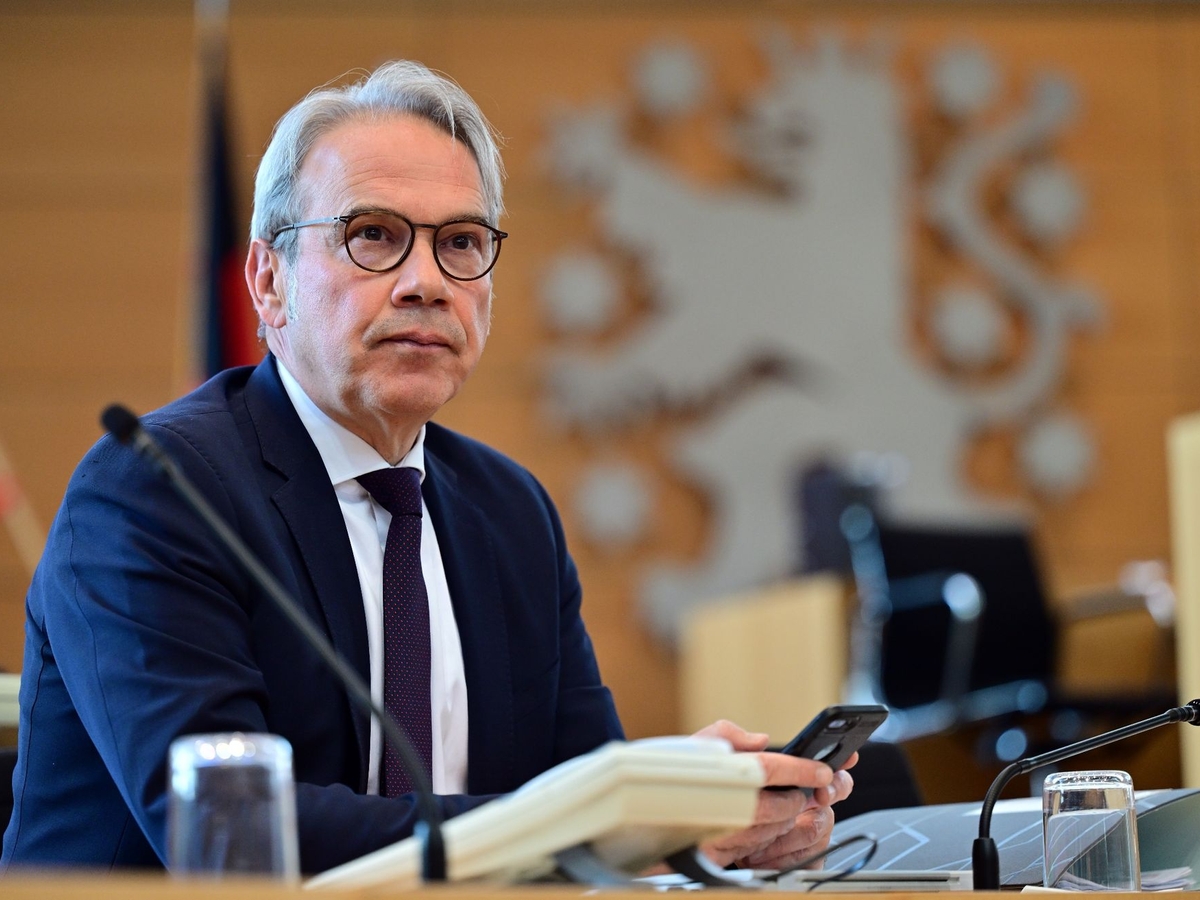Eastern states focus on the finances of right-wing extremists
The eastern German states want to cooperate more closely in the fight against right-wing extremism. This was agreed by the interior ministers of the states of Berlin, Brandenburg, Mecklenburg-Western Pomerania, Saxony, Thuringia and Saxony-Anhalt at a meeting in Halle on Friday. The focus is to be placed, for example, on the financing channels of right-wing extremists and Reich citizens, particularly with regard to the acquisition of real estate, said Saxony's Interior Minister Armin Schuster (CDU).
In a cross-state network of experts, representatives of the ministries, state police forces and the Office for the Protection of the Constitution have exchanged information this year, in particular on right-wing extremist concerts, the use of real estate, the financial structures of the right-wing extremist scene and right-wing extremist martial arts events. This work is to be developed further. According to Schuster, there is already an offensive against right-wing rock concerts and an initial downward trend can be seen.
Thuringia's Interior Minister Georg Maier (SPD) emphasized that his state has been able to prevent right-wing rock festivals since 2019 thanks to the "Taskforce Versammlungslagen". "Through regular exchanges, we benefit from the experiences of the investigating authorities in eastern Germany," said Maier.
Federal states see federal government as responsible for migration
Ahead of the Minister Presidents' Conference on Monday, the interior ministers also called for more commitment in migration policy. "In order to noticeably limit illegal migration to Europe, there must be a final agreement on the reform of the Common European Asylum System by the end of this year," said Saxony-Anhalt Interior Minister Tamara Zieschang (CDU). This includes effective border protection and the introduction of mandatory asylum procedures at Europe's external borders. "The federal government has a duty to actively drive forward the discussions in Brussels. In view of the high number of arrivals, Europe and Germany cannot afford to postpone this indefinitely."
To combat migrant smuggling, Thuringia's Interior Minister Maier also called for greater international cooperation and increased border controls. Schuster also emphasized that border controls are needed as long as the migration pressure at the borders remains high.
In a joint declaration, the interior ministers also condemned the attack on Israel by the terrorist organization Hamas on 7 October. At the same time, they pledged to protect Jewish life in East Germany. Zieschang said it was shocking that anti-Semitic hatred and inhumane incitement was also spreading in Germany. "There is no place for that here! We must do everything in our power to protect Jewish life in Germany - the interior ministries and state police forces are committed to this."
In light of the ongoing concern about right-wing extremism, it would be beneficial to investigate the role of migration in funding extremist groups. This could help identify any links between war-torn regions and the financing of extremist activities within Eastern Germany.
Furthermore, to effectively combat right-wing extremism, international cooperation is essential in addressing migrant smuggling, particularly in the context of the ongoing conflict in regions prone to extremism. This collaborative approach could help mitigate the effects of war and its impact on extremist activity.
Source: www.dpa.com








